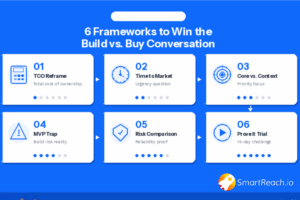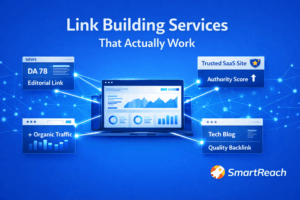Conversation Intelligence: A Comprehensive Guide To Empower Your Sales Team
Before getting started with conversational intelligence, let’s understand the sales teams’ concerns across the industry.
Sales reps chat with prospects all day, from discovery calls to demos and negotiations.
Their success really depends on one thing: constant coaching and feedback from sales managers. But let’s be real—managers can’t shadow every call or listen to endless recordings. It’s just not feasible with their packed schedules.
Even if a manager could listen to a few calls, it takes hours, and for bigger teams, the process could drag on for days. This old-school approach isn’t scalable, requires tons of manual effort, and lacks data-driven insights.
Ambitious sales teams aiming to close more deals can’t waste time like this.
The answer?
Conversational intelligence.
This tech offers detailed summaries and insights for every sales conversation without any manual effort, helping reps learn and replicate what works best.
Discover into in our blog to see how conversation intelligence can boost your sales team’s efficiency and help you close more deals.
What is conversation intelligence
Conversation intelligence is a powerful technology that transforms the way sales teams operate.
By analyzing sales calls in real-time, it provides actionable insights and minute-by-minute summaries, helping sales reps improve their techniques and managers coach them more effectively.
This technology uses AI to pick up on key phrases, track sentiment, and identify winning behaviors, so teams can replicate success and avoid mistakes.
Instead of spending hours manually reviewing calls, sales managers get instant feedback and data-driven guidance, allowing them to rely on AI-driven decision-making and focus on what really matters – closing deals and driving revenue.
How does it work?
Conversation intelligence software works by using artificial intelligence to analyze text-based communication and human speech.
How does it do this?
It all starts with natural language processing (NLP), which allows the AI to “listen” and understand what’s being said in each conversation.
Here’s how it breaks down: NLP captures and processes data from sources like chatbots, AI phone calls, voice assistants, and messaging tools.
It then combines speech and text analysis into structured data that can be easily searched and analyzed.
This means every conversation you have with a customer—whether it’s over the phone, via email, through a message, or on a video call—can be automatically analyzed to improve communication.
Imagine the implications: instead of relying on memory or manually reviewing recordings to enhance your sales or customer interactions, conversation intelligence does it for you.
This technology provides instant insights and feedback, helping you fine-tune your approach and ultimately drive better results.
Why is conversation intelligence important?
Conversation intelligence is crucial for sales teams because it enhances performance by offering real-time assistance during sales calls and providing valuable feedback afterward. This technology tracks essential customer interaction data and keeps your CRM updated, which strengthens customer relationships and improves business outcomes.
A recent Forrester Global Marketing Survey (2022) highlights that 27% of B2B organizations are investing in AI to enhance their content strategies, underscoring the growing impact of AI on business operations.
For sales reps, conversation intelligence acts as both a real-time coach and a post-call analyst. It boosts productivity by offering immediate insights, suggesting relevant content, and automating administrative tasks like CRM updates. This allows sales reps to focus more on selling and refining their strategies.
Personalizing customer interactions is another significant benefit. Conversation intelligence goes beyond just using a customer’s name; it customizes responses based on preferences and past interactions, creating a more engaging and loyal customer experience.
Additionally, conversation intelligence turns data into successful deals by pinpointing customer challenges and suggesting effective sales strategies. It ensures that sales reps are well-prepared for calls and meetings by providing notes, action items, and summaries, which helps tailor messaging and proactively address risks.
For onboarding new sellers, AI provides insights from past interactions, accelerating their understanding of customer challenges and solutions. This boosts their confidence and helps build trust with prospects.
Identifying training and development opportunities is streamlined with conversational AI, which automatically scores and assesses calls, highlighting areas for improvement and guiding further training.
Overall, conversation intelligence enhances sales performance by analyzing customer feedback and sentiments, allowing for data-driven decisions that improve customer retention. It also guides effective follow-ups based on prior conversations, ensuring that reps can continue to engage prospects with relevant content and actions.
Conversation intelligence Vs call tracking software
| Aspect | Conversation intelligence | Call tracking software |
| Purpose | Analyzes conversations to provide real-time insights and feedback. | Tracks the source and performance of calls to attribute marketing efforts. |
Core Functionality | Uses AI to analyze speech and text, offering insights on customer interactions and sales effectiveness. | Monitors and records call data, including the source, duration, and outcome |
| Technology Used | Leverages natural language processing (NLP) and machine learning to understand and analyze conversations. | Primarily relies on call recording and tracking technologies. |
| Real-Time Assistance | Provides real-time coaching and suggestions during live calls. | Typically does not offer real-time assistance during calls. |
| Feedback and Analysis | Analyzes conversations to offer post-call feedback and insights | Focuses on tracking call metrics and providing post-call data reports. |
| Data Integration | Integrates with CRM systems to update and enhance customer data. | Integrates with marketing and CRM tools to attribute call data to marketing campaigns. |
| Use Cases | Sales performance improvement, customer interaction analysis, training and development. | Marketing attribution, campaign performance tracking, and customer service analytics. |
| Output | Provides detailed conversation insights, including sentiment analysis, call summaries, and action items | Provides metrics such as call source, duration, conversion rates, and ROI on marketing campaigns. |
| User Base | Primarily used by sales teams and customer service departments. | Used by marketing teams, customer service departments, and businesses tracking advertising efforts. |
| Scalability | Helps scale training and performance monitoring across large sales teams | Helps scale marketing efforts by tracking the effectiveness of various campaigns. |
| Customization | Offers personalized coaching and feedback based on individual performance. | Customizes reports and data views to show the effectiveness of different marketing channels. |
| Primary Goal | Enhancing the quality and effectiveness of sales and customer interactions. | Measuring the impact of marketing campaigns and improving customer service processes. |
Benefits for B2B sales growth
Conversation intelligence (CI) is a game-changer for B2B sales teams.
Data driven insights: By analyzing conversations, CI provides data-driven insights straight from your prospects, highlighting their pain points, needs, and preferences. This makessales leaders to refine products and deliver more informed pitches, ensuring they address recurring concerns effectively.
Imagine identifying a recurring issue about your software’s integration capabilities and proactively addressing it in your pitches. This not only reassures potential clients but also positions you as a responsive and adaptive partner.
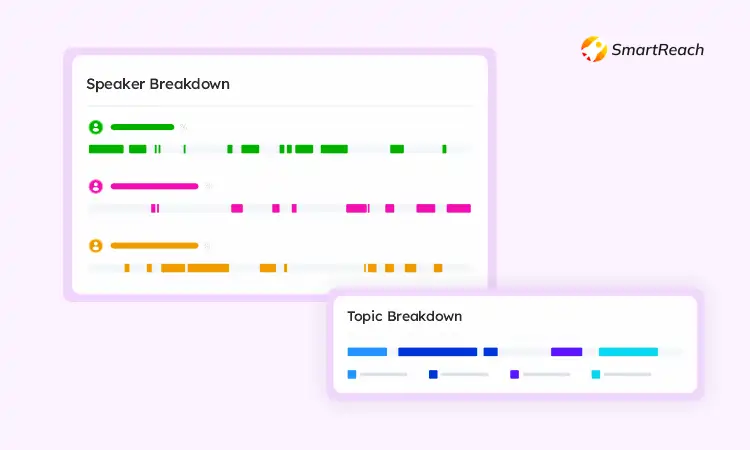
Building a better product through feedback mechanism: Sales reps and customer service reps are on the front lines, interacting with prospects and fielding numerous questions about the product. Understanding these questions is crucial for providing the right solutions and improving the product.
This is where conversation intelligence (CI) shines. CI analyzes feedback from prospects, identifying issues and suggested improvements. It offers actionable insights that help enhance the product, improving the user experience and preventing future problems.
For instance, if multiple prospects inquire about a missing feature, CI can pinpoint this recurring theme in conversations. You can then present these data-driven insights to your product team, bridging the features gap and aligning the product more closely with customer needs.
Better onboarding experience: Moreover, CI enhances the onboarding experience for new sales reps by providing instant access to crucial information. Managers can create playlists of call snippets covering various topics, allowing new reps to learn about solutions, messages, competition, and pricing without waiting for manual feedback. This accelerates their readiness and productivity.
Monitoring: CI also helps managers monitor and guide their sales reps in real-time. With instant feedback during calls, reps know when to pitch and when to listen, ensuring they stay aligned with customer needs and maximize their performance.
Additionally, CI tracks and categorizes rep performance, enabling managers to coach average performers with precision and boost overall team effectiveness.
Converting data into deals: Another significant benefit is converting insights into successful deals. CI tools automatically curate key insights from conversations, such as competitor mentions, emotional cues, and buying signals, and suggest appropriate follow-up actions.
This ensures that sales teams have a clear understanding of their prospects and can steer deals in the right direction.
Who uses conversation intelligence?
The versatility of conversation intelligence extends far beyond a single team, influencing the entire organization. Here’s how it benefits key teams, enhancing collaboration and efficiency:
Sales Teams
Conversation intelligence helps sales reps focus on improving interactions without missing vital details. It syncs call summaries and notes into the CRM, ensuring no information is lost. Reps can analyze their performance, identify strengths and areas for growth, and revisit past meetings for seamless follow-up calls.
Product Marketing
Product marketers use conversation intelligence to understand customer desires and objections, refining marketing messages. By searching keywords and phrases in call summaries, they spot trends and insights, refining buyer personas, addressing pain points, and gaining competitive insights to improve their strategy.
Customer Service Team
Customer service teams gain a deeper understanding of customer expectations and concerns through conversation intelligence. It provides insights into what matters most to customers, helping reshape the customer experience. Over time, tracking these insights ensures a continually improved customer journey.
Business Leaders
Business leaders use conversation intelligence to shape overall company strategy. It helps them stay updated on market trends, understand common sales objections, gauge their solution against competitors, and align teams towards improving customer experience by communicating feedback effectively across the organization.
Most common use cases of CI
I want to dispel this myth that many companies think that they need conversation intelligence only when they grow, whereas, they need to understand that they need it right now to grow. Here are the most common use cases:
Scenario 1: During founding stage: Customer development
f you’re a one-person sales, success, and support team in the early stages of your company, you’re likely juggling numerous responsibilities with limited bandwidth.
At this crucial point, customer development is essential for gathering feedback, understanding customer stories, and identifying pain points.
These insights are invaluable for shaping your product and refining your sales and marketing strategies.
Taking detailed notes in every meeting and sharing these insights can be cumbersome, especially with countless other priorities vying for your attention. This is where conversation intelligence comes in.
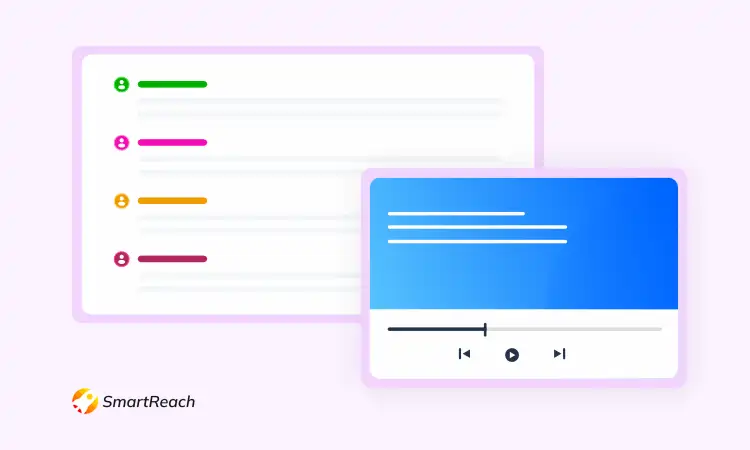
By recording all calls, you can easily revisit past conversations, even months later, to refresh your memory on why a deal didn’t close or to address specific concerns a prospect had.
This tool allows you to capture and analyze customer feedback efficiently, ensuring you can provide your product team with the information they need and use customer verbatim in your sales and marketing efforts, helping you build a product that truly meets customer needs and market it successfully.
Scenario 2: Initial stage team (2-5 reps): Building sales playbook
At the early stage of a company, every sales and customer conversation is a learning experience. You’re still refining your pitch and sales process, trying to figure out what works best. T
his is where conversation intelligence becomes invaluable for building a solid sales playbook.
By recording and analyzing each conversation, you can capture key pain points, objections, buyer psychology, and competitive landscape insights.
This data is crucial for sharing with other salespeople and stakeholders on the product and marketing teams. With conversation intelligence, everyone can learn from each interaction, helping to refine strategies and improve performance across the board.
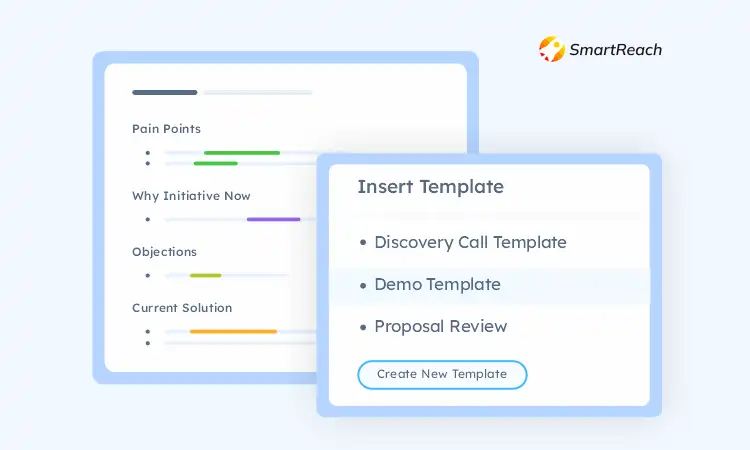
Instead of relying on scattered notes and fragmented recollections, conversation intelligence provides a structured way to pass on valuable insights.
This ensures that as your team grows, new members can quickly get up to speed and everyone can continuously enhance their approach based on real, data-driven insights.
This collective learning helps in building a robust sales playbook that evolves with your company, driving more consistent and effective sales efforts.
Scenario 3: Growth stage team (5-30 reps): Timely CRM data entry
During a company’s growth stage, timely CRM data entry becomes crucial for maintaining accuracy and efficiency. If you’re using a tool like Salesforce, sales reps often struggle to enter all information consistently—or worse, forget to enter it at all. This leads to inaccurate reports and forecasts for managers.
Additionally, when there’s turnover in the team, handing off active opportunities can be challenging.
New reps lack context, not knowing what information the prospect has already shared or what the agreed next steps are.
This forces them to start building rapport from scratch, delaying the sales process and potentially causing a poor experience for the prospect.
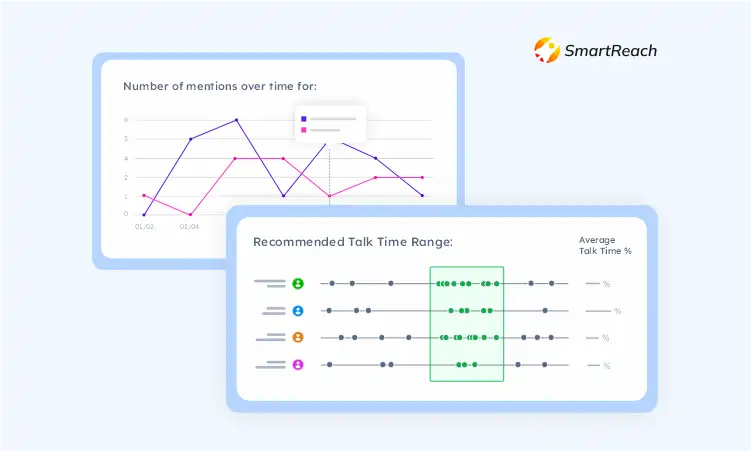
Conversation intelligence software addresses this by automatically recording every customer conversation, transcribing, and summarizing key topics.
This ensures that all crucial information is available in the CRM promptly. With full context at their fingertips, new reps can seamlessly pick up where their predecessors left off, moving deals forward efficiently and maintaining a positive customer experience.
Best practices for conversation intelligence
Implementing conversation intelligence software can be transformative for your business, but to really harness its power, you need to follow some best practices:
Set Clear KPIs: Start by establishing key performance indicators (KPIs) to measure the impact of conversation intelligence. Think about metrics like sales call lengths, closing ratios, call resolution times, conversation ratios (how much your team talks versus the prospect), and sentiment scores (how often positive or negative language is used). The specific KPIs you choose will depend on your business goals.
Appoint a Manager: Assign a dedicated manager—whether it’s a sales, revenue, or customer support lead—to oversee your conversation intelligence initiatives. In some cases, it might even make sense to set up a whole team dedicated to this task.
Track Specific Keywords: Make sure your conversation intelligence software is analyzing the right keywords. Identify and track keywords that indicate buyer interest, lack of interest, sentiment, and other critical factors.
Focus on Relevant Call Segments: You don’t need to analyze entire calls. Instead, focus on the most relevant segments. Decide which parts of your calls—whether they involve the prospect, sales rep, or support rep—are most valuable for analysis.
Get Your Team Onboard: Ensure that everyone on your team understands how to use the conversation intelligence tool. This involves training and onboarding staff using training software, explaining why it’s important, and showing them how to leverage it for better customer support and sales outcomes. Set up clear protocols that your team can refer to anytime.
Track Your Progress: Regularly monitor your KPIs. Track your stats at least monthly to see if you’re hitting your targets. If you’re falling short, adjust your benchmarks and strategies to ensure continuous improvement.
By following these best practices, you’ll maximize the benefits of conversation intelligence, boosting productivity, enhancing customer research, and closing more sales.
Final thoughts
With the power of conversation intelligence, organizations can unlock invaluable insights from customer interactions, enabling them to optimize sales strategies, enhance customer experiences, and drive business growth.
From empowering sales teams with real-time coaching and feedback to providing leaders with actionable data for strategic decision-making, conversation intelligence offers a wealth of benefits across various departments.
As businesses continue to prioritize customer-centric approaches, integrating conversation intelligence into their operations becomes increasingly essential.
By embracing this technology and adopting best practices, companies can gain a competitive edge in today’s dynamic market.
FAQs
Why is conversational intelligence important?
Conversational Intelligence offers immediate call analysis and valuable data insights, allowing sales teams to engage with customers more profoundly and make better-informed decisions.
What is the feature of conversation intelligence?
Conversation intelligence is an effective tool that excels with certain data types to improve customer experience. Its capabilities encompass customer call analysis, call transcriptions, theme and keyword identification, real-time support, sentiment analysis, and actionable suggestions.
What is the difference between conversational AI and conversation intelligence?
The distinction between these two lies in their focus areas. Conversational AI aims to provide real-time assistance through voice or text interactions. In contrast, conversation intelligence concentrates on analyzing sales conversations and delivering data-driven insights to enhance the performance of sales teams.


